天大英文版化工原理1-11Definitions and Principles-课件
- 格式:ppt
- 大小:927.00 KB
- 文档页数:58

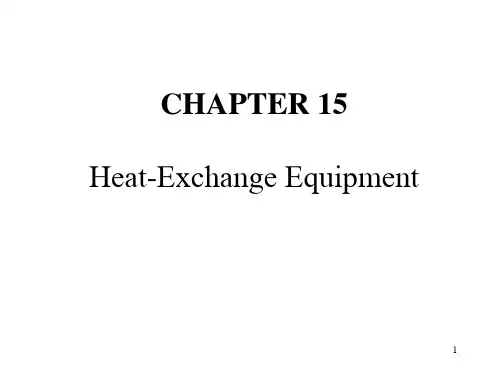
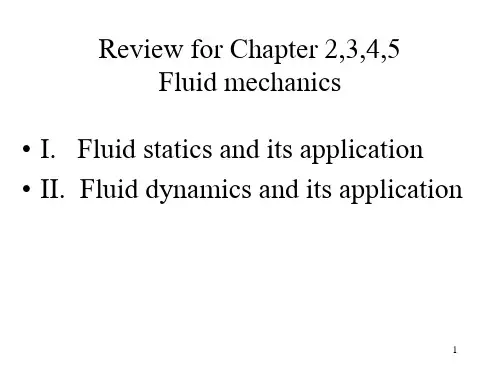

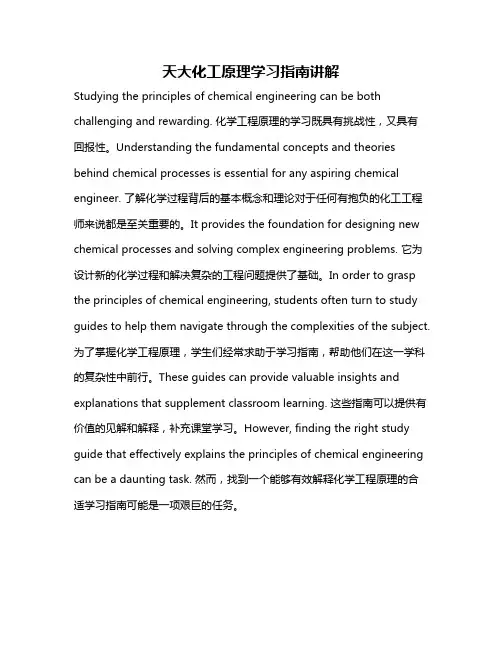
天大化工原理学习指南讲解Studying the principles of chemical engineering can be both challenging and rewarding. 化学工程原理的学习既具有挑战性,又具有回报性。
Understanding the fundamental concepts and theories behind chemical processes is essential for any aspiring chemical engineer. 了解化学过程背后的基本概念和理论对于任何有抱负的化工工程师来说都是至关重要的。
It provides the foundation for designing new chemical processes and solving complex engineering problems. 它为设计新的化学过程和解决复杂的工程问题提供了基础。
In order to grasp the principles of chemical engineering, students often turn to study guides to help them navigate through the complexities of the subject. 为了掌握化学工程原理,学生们经常求助于学习指南,帮助他们在这一学科的复杂性中前行。
These guides can provide valuable insights and explanations that supplement classroom learning. 这些指南可以提供有价值的见解和解释,补充课堂学习。
However, finding the right study guide that effectively explains the principles of chemical engineering can be a daunting task. 然而,找到一个能够有效解释化学工程原理的合适学习指南可能是一项艰巨的任务。
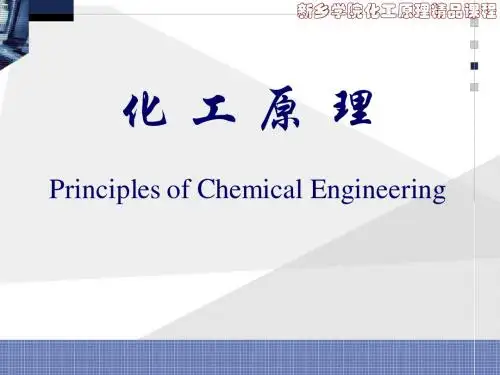
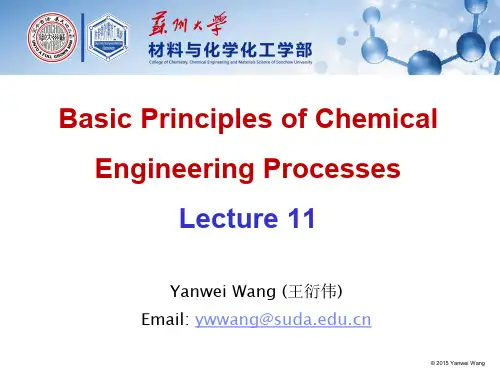
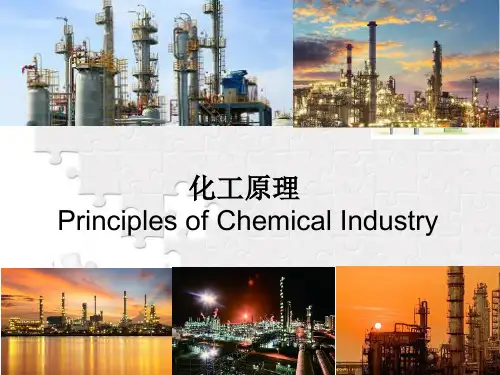


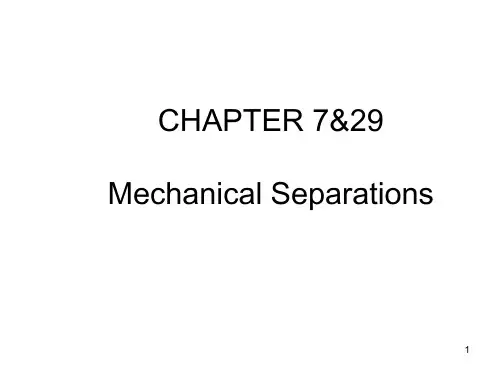
Chemical Engineering PrinciplesIntroductionChemical engineering principles form the foundation of designing and operating various chemical processes in industries. These principles encompass a wide range of essential concepts and theories that allow engineers to understand and manipulate the behavior of different substances and materials. In this document, we will explore the fundamental principles of chemical engineering and their applications in various industrial processes.Mass and Energy BalancesMass and energy balances are fundamental concepts in chemical engineering. Mass balance involves the conservation of mass during a chemical process. It states that the mass entering a system must be equal to the mass leaving the system, taking into account any accumulation or depletion of mass within the system. Energy balance, on the other hand, deals with the conservation of energy. It states that the energy entering a system must be equal to the energy leaving the system, considering energy transformations and transfers within the system.ThermodynamicsThermodynamics plays a vital role in chemical engineering as it deals with the study of energy transformations and the relationships between various forms of energy. It provides a framework for understanding the behavior of substances and their ability to undergo chemical reactions. The laws of thermodynamics, namely the first and second laws, are essential principles in chemical engineering. The first law states that energy cannot be created or destroyed, but it can be transformed from one form to another. The second law states that the entropy of a system tends to increase over time, leading to a spontaneous direction for chemical reactions.Fluid MechanicsFluid mechanics is another crucial aspect of chemical engineering that deals with the behavior of fluids (liquids and gases) in motion. It involves the study of fluid properties and their flow characteristics in pipes, channels, and other equipment. Fluid mechanics principles are applied in designing efficient transportation systems for fluids, such as pumps and pipelines. Additionally, the analysis of fluid flow patterns and pressure drops is essential in optimizing process efficiency and preventing equipment failures.Heat TransferHeat transfer is the study of how thermal energy is transferred between different substances. In chemical engineering, an understanding of heat transfer is essential for designing and operating heat exchangers, reactors, and other process equipment. There are three main modes of heat transfer: conduction, convection, and radiation. Conduction involves heat transfer through direct contact between substances, convection involves heat transfer due to fluid motion, and radiation involves heat transfer through electromagnetic waves.Separation ProcessesSeparation processes are vital in chemical engineering to isolate and purify desired products from mixtures. These processes involve the separation of different components based on their physical or chemical properties. Some common separation processes include distillation, absorption, extraction, filtration, and crystallization. The selection and design of appropriate separation processes depend on the composition of the mixture and the desired product specifications.Reaction EngineeringReaction engineering focuses on the study of chemical reactions and their kinetics. Chemical reactions are at the core of many industrial processes, and understanding their behavior is crucial for optimizing reaction conditions and maximizing product yields. Reaction engineering involves the design and operation of reactors, including considerations such as reaction rates, temperature, pressure, and catalysts. Engineers use reaction kinetics and thermodynamics principles to determine the optimal reaction conditions for desired product formation.Process ControlProcess control is an essential aspect of chemical engineering that involves maintaining optimal operating conditions for chemical processes. It aims to ensure consistent product quality and maximize process efficiency. Process control utilizes various techniques, such as feedback control systems, instrumentation, and process optimization algorithms, to monitor and adjust process variables like temperature, pressure, flow rate, and composition.ConclusionChemical engineering principles form the backbone of various industrial processes. Understanding these principles enables engineers to design, optimize, and operate chemical processes efficiently. This document has provided an overview of some fundamental principles, including mass and energy balances, thermodynamics, fluid mechanics, heat transfer, separation processes, reaction engineering, and process control. These principles are essential for any aspiringchemical engineer to master in order to contribute effectively to the field and tackle real-world challenges.。